Abstract
An analysis of Munchausen syndrome by proxy is proposed, which involves a categorisation of parental behaviour in terms of desire to consult and ability to distinguish the child's needs from parents' own needs. The Munchausen syndrome by proxy case is proposed as one extreme of a much broader and commoner group for which the term factitious illness is used. An outline of assessment and investigation is given, applicable to all degrees of factitious illness, together with a model of collaboration between paediatrician and child psychiatrist. The role of the child psychiatrist is described. Collaboration results in a broader analysis of the situation which facilitates understanding and points the way to appropriate intervention.
Full text
PDF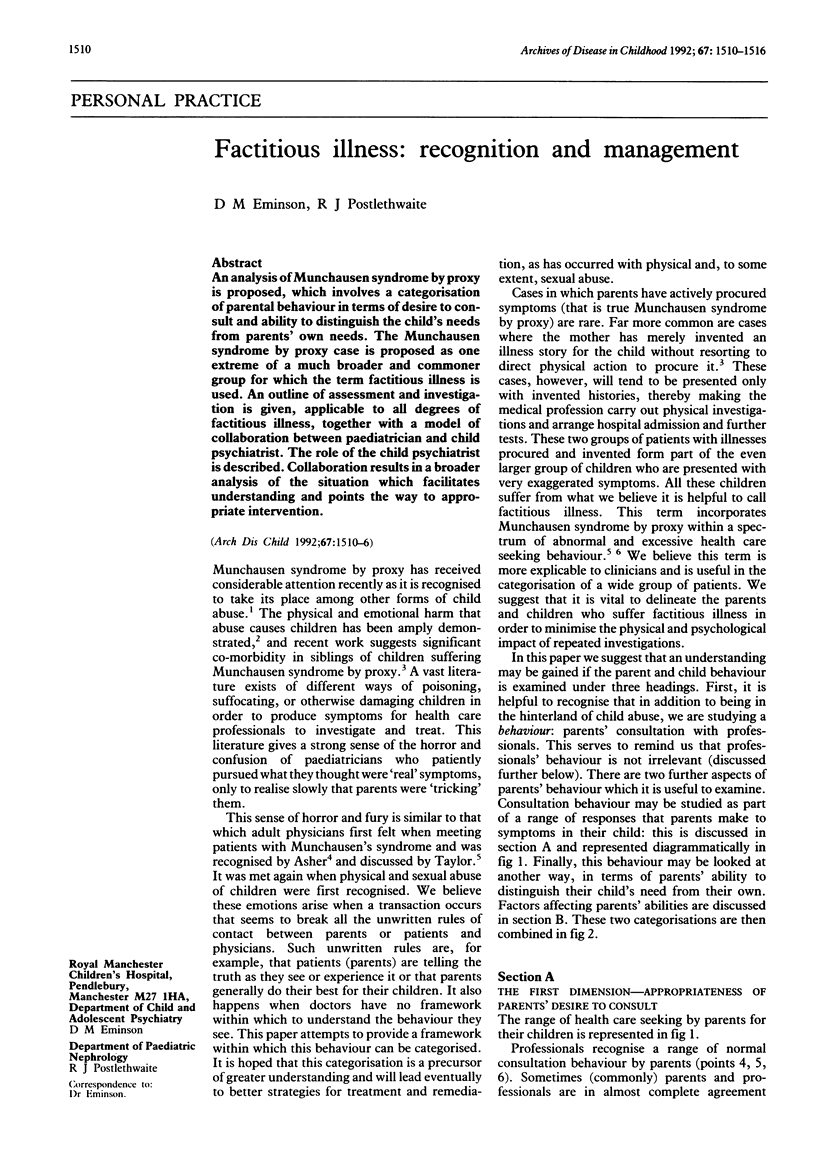
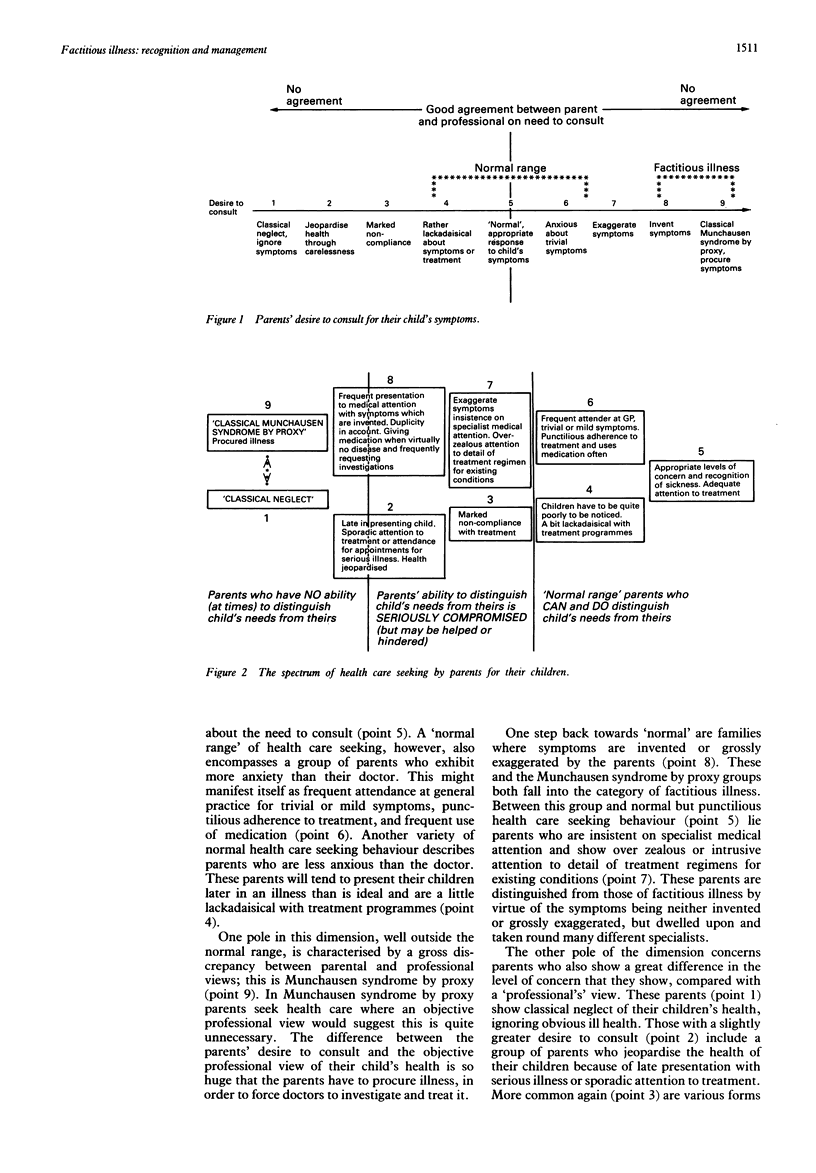
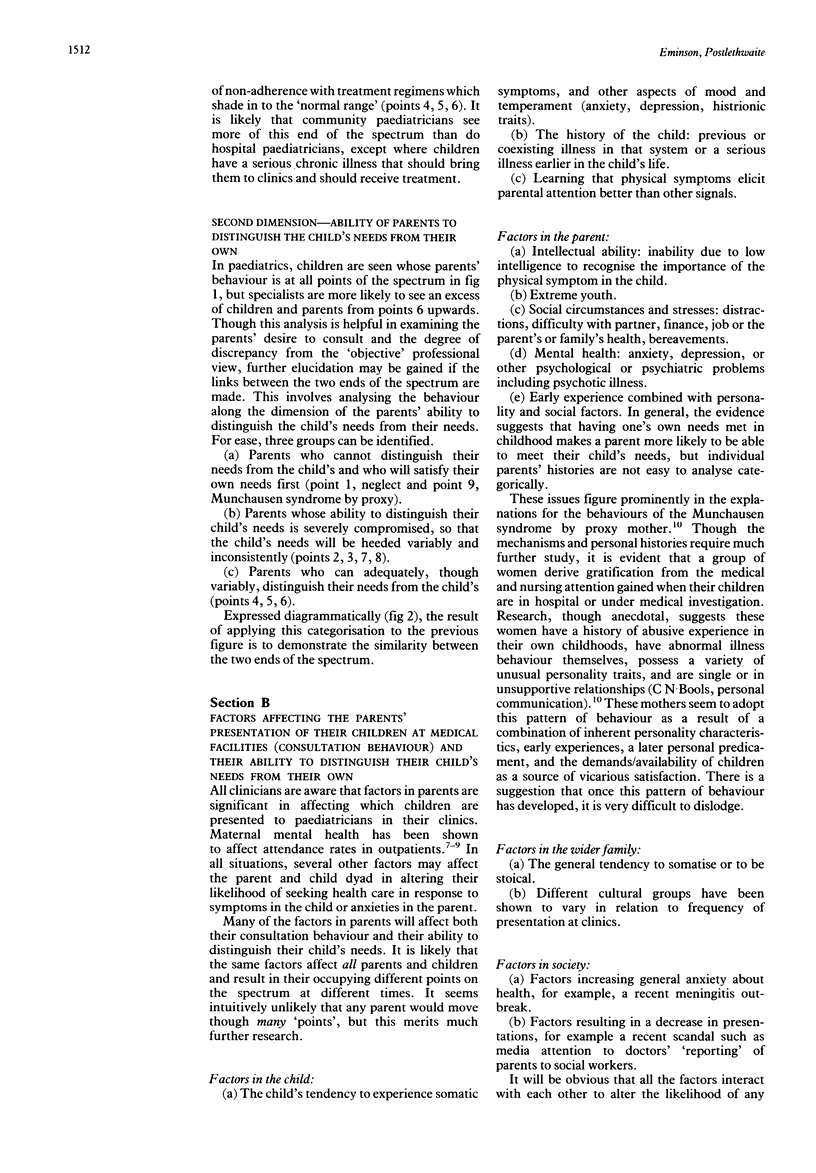
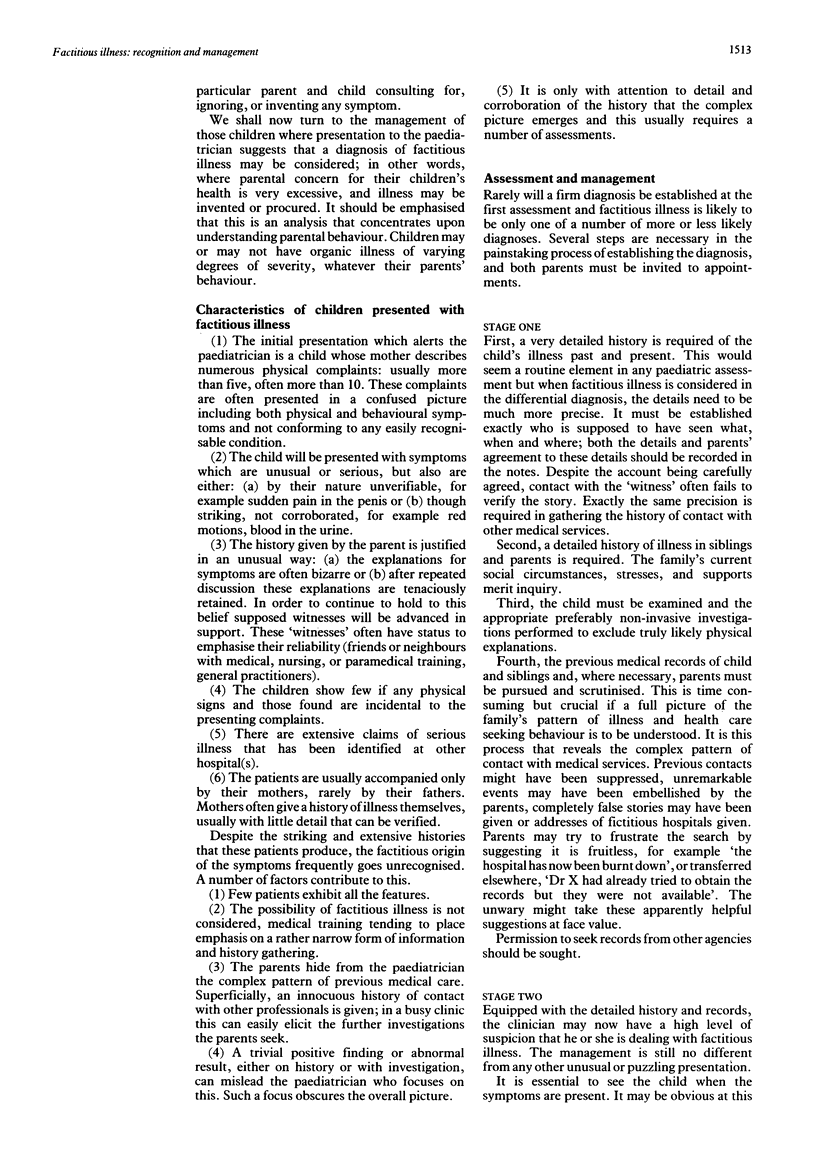
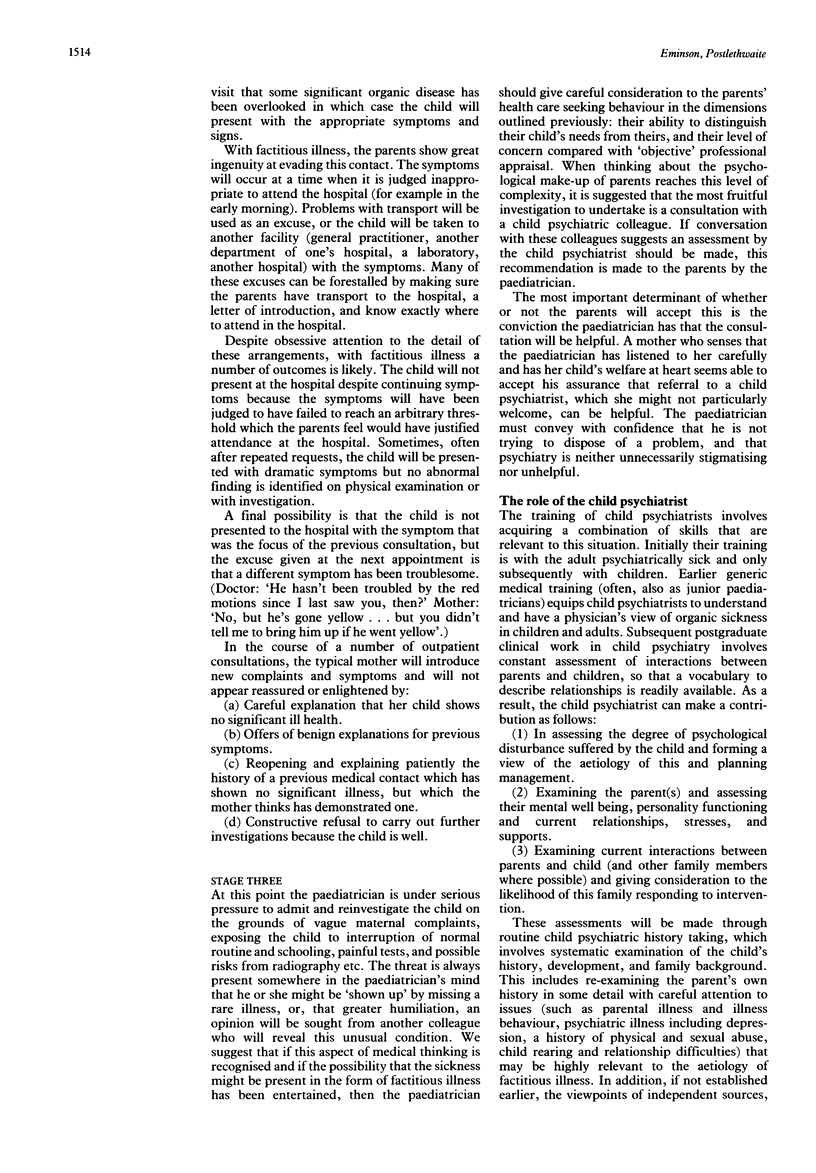
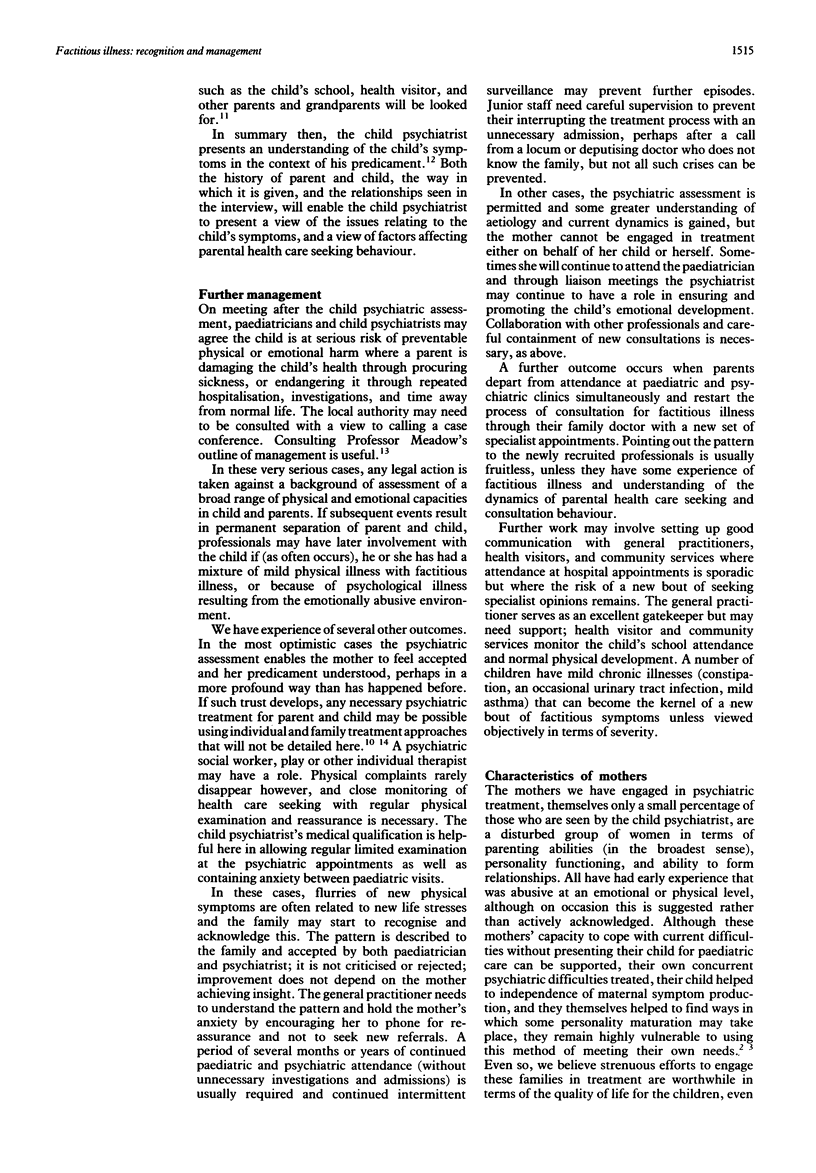
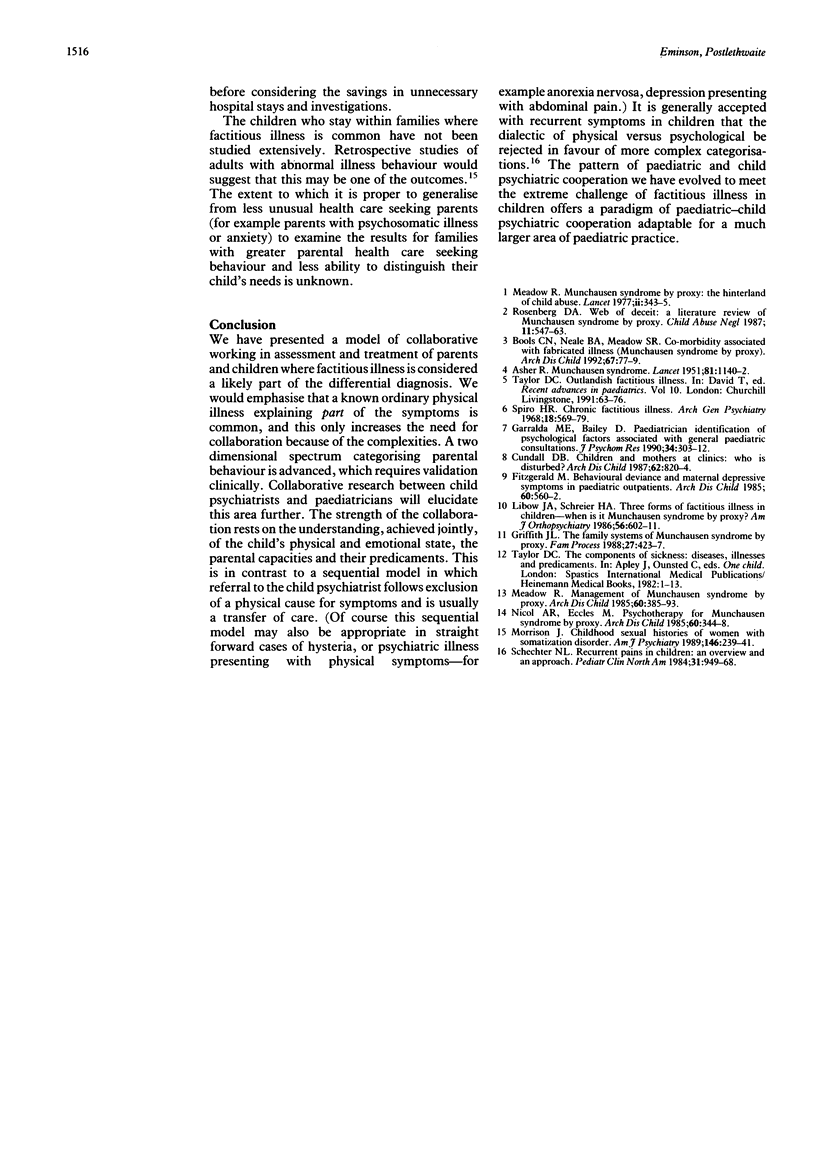
Selected References
These references are in PubMed. This may not be the complete list of references from this article.
- Bools C. N., Neale B. A., Meadow S. R. Co-morbidity associated with fabricated illness (Munchausen syndrome by proxy). Arch Dis Child. 1992 Jan;67(1):77–79. doi: 10.1136/adc.67.1.77. [DOI] [PMC free article] [PubMed] [Google Scholar]
- Cundall D. B. Children and mothers at clinics: who is disturbed? Arch Dis Child. 1987 Aug;62(8):820–824. doi: 10.1136/adc.62.8.820. [DOI] [PMC free article] [PubMed] [Google Scholar]
- Fitzgerald M. Behavioural deviance and maternal depressive symptoms in paediatric outpatients. Arch Dis Child. 1985 Jun;60(6):560–562. doi: 10.1136/adc.60.6.560. [DOI] [PMC free article] [PubMed] [Google Scholar]
- Garralda M. E., Bailey D. Paediatrician identification of psychological factors associated with general paediatric consultations. J Psychosom Res. 1990;34(3):303–312. doi: 10.1016/0022-3999(90)90086-j. [DOI] [PubMed] [Google Scholar]
- Griffith J. L. The family systems of Munchausen syndrome by proxy. Fam Process. 1988 Dec;27(4):423–437. doi: 10.1111/j.1545-5300.1988.00423.x. [DOI] [PubMed] [Google Scholar]
- Libow J. A., Schreier H. A. Three forms of factitious illness in children: when is it Munchausen syndrome by proxy? Am J Orthopsychiatry. 1986 Oct;56(4):602–611. doi: 10.1111/j.1939-0025.1986.tb03493.x. [DOI] [PubMed] [Google Scholar]
- Meadow R. Management of Munchausen syndrome by proxy. Arch Dis Child. 1985 Apr;60(4):385–393. doi: 10.1136/adc.60.4.385. [DOI] [PMC free article] [PubMed] [Google Scholar]
- Meadow R. Munchausen syndrome by proxy. The hinterland of child abuse. Lancet. 1977 Aug 13;2(8033):343–345. doi: 10.1016/s0140-6736(77)91497-0. [DOI] [PubMed] [Google Scholar]
- Morrison J. Childhood sexual histories of women with somatization disorder. Am J Psychiatry. 1989 Feb;146(2):239–241. doi: 10.1176/ajp.146.2.239. [DOI] [PubMed] [Google Scholar]
- Nicol A. R., Eccles M. Psychotherapy for Munchausen syndrome by proxy. Arch Dis Child. 1985 Apr;60(4):344–348. doi: 10.1136/adc.60.4.344. [DOI] [PMC free article] [PubMed] [Google Scholar]
- Rosenberg D. A. Web of deceit: a literature review of Munchausen syndrome by proxy. Child Abuse Negl. 1987;11(4):547–563. doi: 10.1016/0145-2134(87)90081-0. [DOI] [PubMed] [Google Scholar]
- Schechter N. L. Recurrent pains in children: an overview and an approach. Pediatr Clin North Am. 1984 Oct;31(5):949–968. doi: 10.1016/s0031-3955(16)34679-x. [DOI] [PubMed] [Google Scholar]
- Spiro H. R. Chronic factitious illness. Munchausen's syndrome. Arch Gen Psychiatry. 1968 May;18(5):569–579. doi: 10.1001/archpsyc.1968.01740050057010. [DOI] [PubMed] [Google Scholar]


